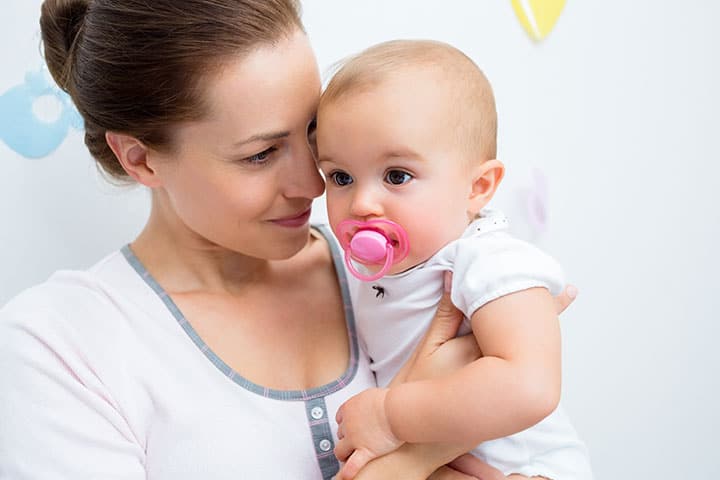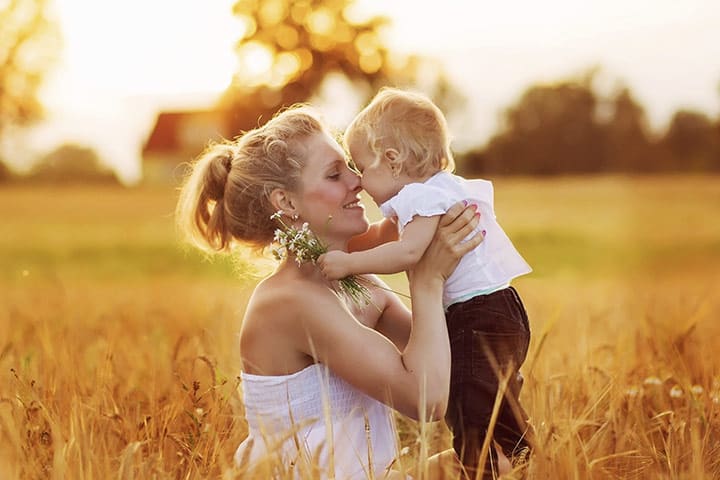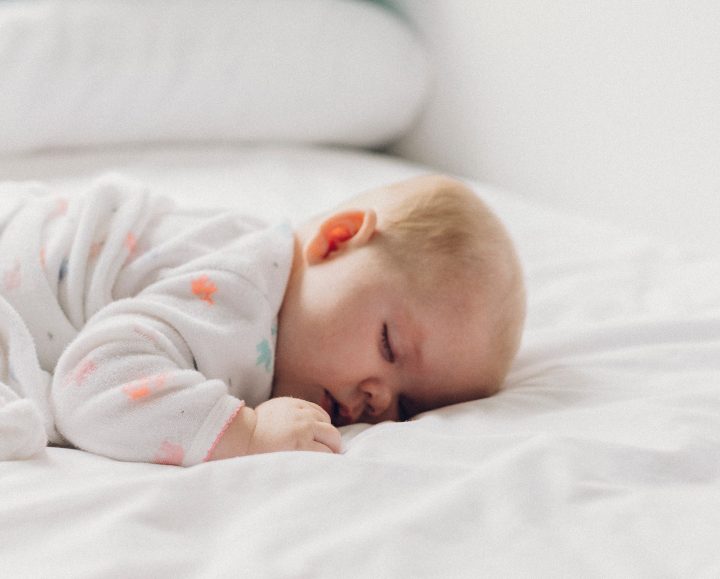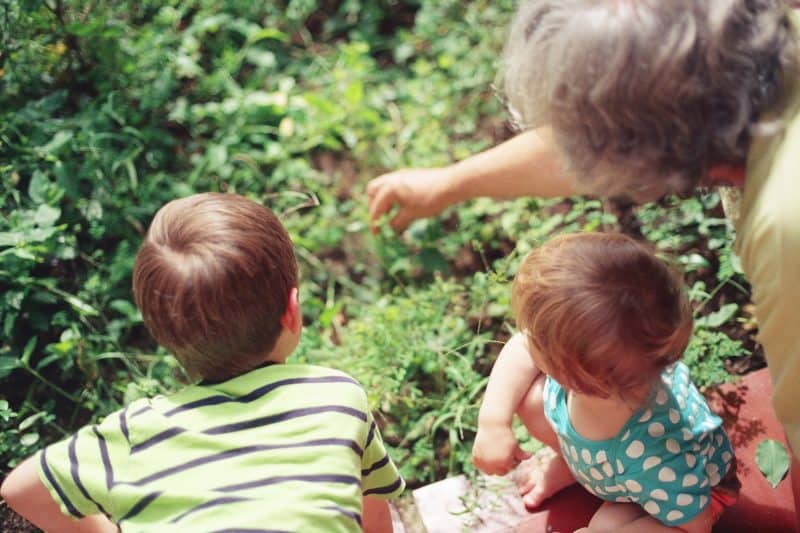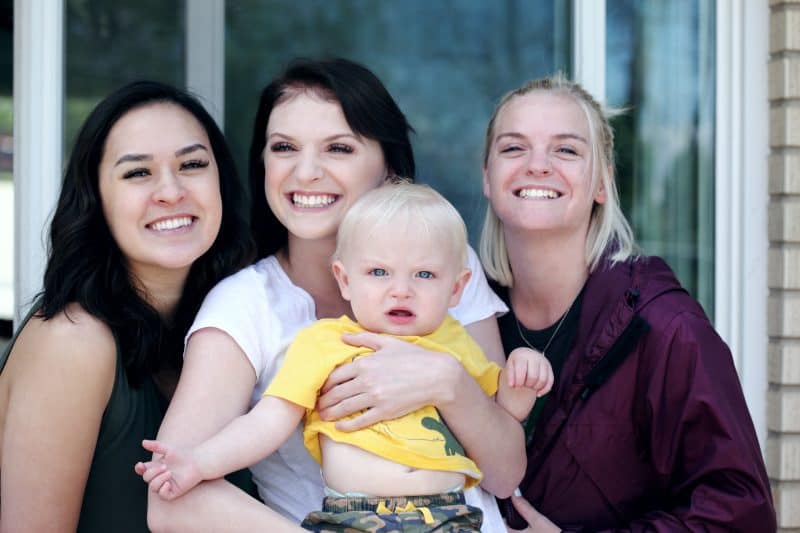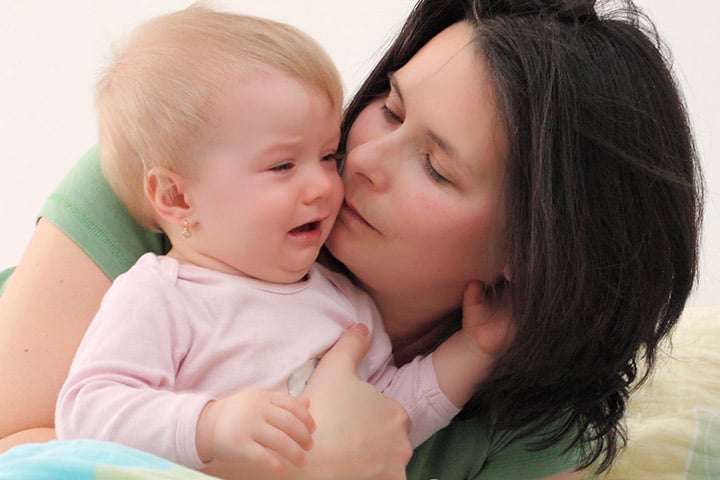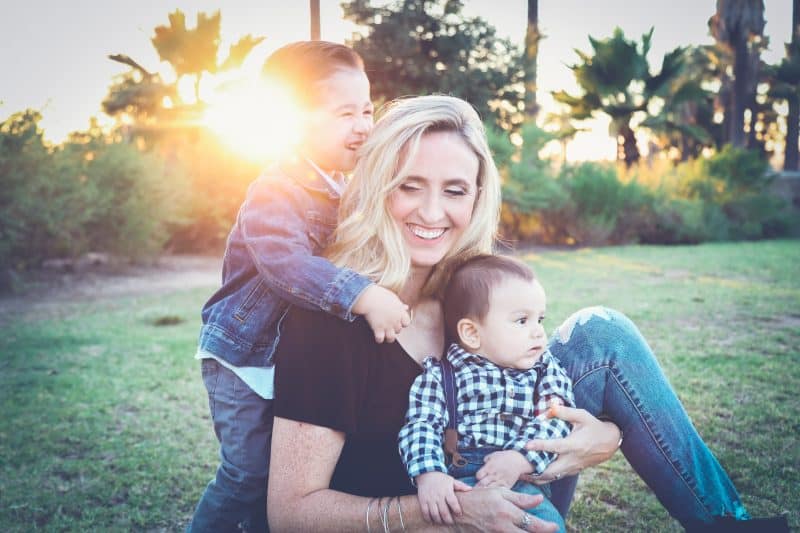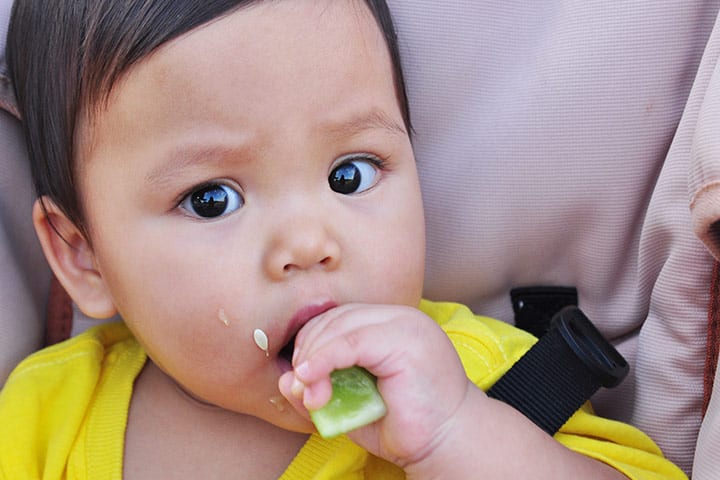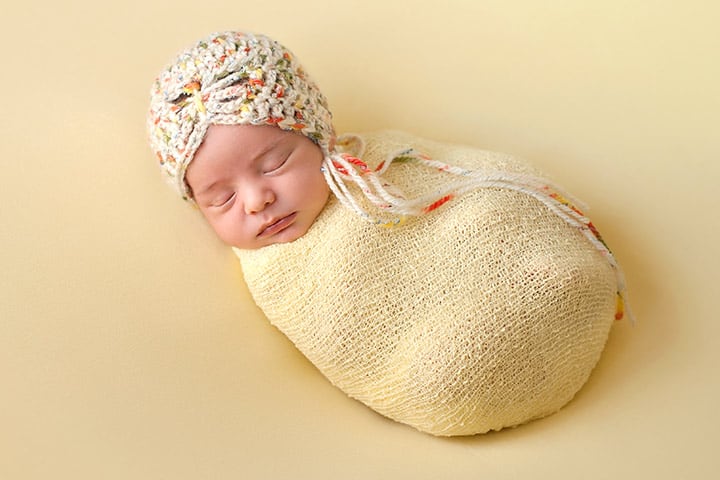I was just settling down on a couch. After a tiresome day with my baby, I wanted to relax reading a book. Alas, that was not to happen. My daughter woke up and began to wail incessantly.
“Oh no, not again!” I thought. “Why did she wake up in 30 minutes?”
When such situations became frequent, I realize that the naughty girl was actually getting overtired! As she could not talk to me, she was communicating in a way she could. Unfortunately, I could not read the cues. Once I realized the problem, it was not difficult to note the signs of an overtired baby.
If you, too, want to know how to get an overtired baby to sleep, then read on, as MomJunction tells you why the babies can get overtired, how you can read the signs, and deal with it.
What Is Overtiredness?
Overtiredness is a condition in between tiredness and exhaustion. It is a state of physical fatigue that activates the stress-response system.
An overtired baby is too tired to sleep and gets fussy. Even if she manages to fall asleep, she would wake up soon after and struggle to go back to sleep. The more the baby gets tired, the harder it is to put her to sleep, as she cannot control or express herself. To put it simple, an overtired baby just won’t sleep.
Can a little baby, who seemingly has little activity through the day, get really overtired? Yes, she can and it is interesting to know what makes her so tired.
Why Do Babies Get Overtired?
The most common cause for overtiredness is sleep deprivation. Your little one learns several things during the day time. To process all of them, she needs regular naps. That is why babies have short awake hours, which extend with age. For example:
- A newborn can cope with just 45-minute awake time before getting tired.
- A six-month baby can have a two-hour awake time.
- A toddler can deal with a five-hour awake time.
As your baby gets closer to finishing her awake time, she turns drowsy and is all set for a nap. This is the right time for you to settle down your little one, as she can fall asleep with ease.
But what if you do not put her to sleep at the right time? Well, she will have to produce more of cortisol and adrenaline hormones to stay awake. Now, this is stress! The cortisol and adrenaline hormones flood into the bloodstream, making it difficult for the little one to relax.
Note: Crying it out is not helpful for babies and could be stressful.
Why do babies cry when they are tired? Your baby could cry as the last resort after trying to communicate with you in several other ways. If you are asking, “In what way does she communicate with me?” then read on.
Signs Of Tiredness In Babies:
Understanding your baby’s cues will help your baby sleep. You need not have to deal with a grumpy baby. Doesn’t it sound great! Here are a few common and early cues of tiredness in babies (1).
- Facial expressions: If your baby’s expression changes from happy to grumpy, she is getting tired gradually.
- Rubbing eyes, hair and ears: These are among the most common signs of tiredness among babies and are commonly mistaken for teething.
- Yawning: This is one sign you cannot miss! When your baby is yawning, wrap up whatever you are doing and put her to sleep.
- Avoiding eye contact: A tired baby tends to avoid looking at you directly. She may even stare blankly into space.
- Stiffening the body: Your baby may have rigid or tense hands and legs. She may keep her fists clenched.
- Losing interest: If your baby suddenly loses interest in her favorite toy or food, it may be due to tiredness.
- Difficulty in latching: Overtired newborns have difficulty in latching or cry at the breast. Older babies may throw food, toys or things that are there in their hands. Some babies may even hit or smack.
- Self-soothing: If you ignore the early signals, the tired baby sends self-soothing signals like sucking the thumb, searching for a dummy and so on.
- Autonomic signals: After a while, your baby may exhibit autonomic signals, which happen without her conscious control. They include:
- Sneezing
- Hiccups
- Sweaty palms
- Quick breathe
- Blueness around the mouth in infants
If you miss all these signals the probable outcome is a fussy and crying baby. All these are late signs of an overtired baby. At this stage, a tired newborn cries without any apparent reason, pulls up legs in pain, and arches her back. An older baby puts up miserable behavior, rejects food, fights sleep, screams, and cries.
All these are signs of ‘Flight, Fright and Fight’ that are the classic response to stress hormones. A fussy baby means you surely have missed the bus!
Note: Sometimes, parents may not be able to differentiate between overtiredness of the baby and reflux and colic. Understanding the actual reason is important. Seek a doctor’s advice, if required.
What if you overlook these tiredness cues? You may have to deal with full out meltdowns, which could be a nightmare. Make efforts to calm down the exhausted baby.
How To Calm an Overtired Baby And Put Her To Sleep?
Some babies are ready to sleep at the first signs of tiredness. But some need to be very tired before they fall asleep. You’ll know the difference as your baby grows.
Here’s what you can do when you see tired signs in your baby: (2)
- Rocking
- Swaddling
- Holding
- Feeding
- Playing white noise
- Dimming the lights
To calm down an older baby:
- Rock the little one to drowsiness.
- Sing a lullaby or feed if it is feed time.
- Avoid eye contact. Give her some quiet time.
- Take her away from the noisy environment. No TV, no loud conversations.
- Read a book to help settle her down. Use soothing voice to calm her down faster.
When a baby is tired, she may wake up soon after she falls asleep. So be ready to soothe her back to sleep.
Behavior Of A Baby Constantly Tired
If your baby is getting overtired frequently, she displays a different behavior. It is essential to figure it out and take necessary measures. Such a baby may:
- Sleep for less than average time for her age and refuse to fall asleep. Turns hyperactive.
- Wake up to the slightest of noise and have short or few day-time naps.
- Refuses feeds or baby is too tired for feeds. Such babies feed well during nights. Sleep unusually long during nights.
- Be more content in the mornings than afternoons. Cries often, has short attention spans, seeks constant attention from you while awake.
- Not want to get into her high chair, car seat or crib. Wants you to rock her endlessly.
- Show extreme separation anxiety or have an insatiable appetite.
- Fall asleep even before the feed gets complete.
Overlooking these behaviors could hamper the overall development of the baby. It is essential to prevent overtiredness by giving her enough naps. Keep reading to learn several ways to achieve this.
5 Tips To Prevent Tiredness In Babies
Keeping an eye on your little one and her activities would help her from getting tired frequently. These tips would be beneficial.
- Settle her down at the first sign of tiredness.
- Keep your baby comfortable. Dress her in suitable clothing.
- Keep her room cool with dim lights.
- Do not stimulate or stress the little one during her sleep time.
- Have a fixed bed/nap time and plan a bedtime routine with a warm bath (3).
When you know that your baby goes to sleep at seven in the evening, be ready for her bedtime routine beforehand.
Frequently Asked Questions
Q. Why do babies cry when they are tired?
A. Your baby was happily playing around, creating a mess, and then she turns inconsolable. She just won’t settle down! Well, an overtired baby cries it out. They can neither realize nor express their tiredness and eventually cry. They fight to fall asleep.
Q. Do hormones make a baby tired?
A. Hormones and neurotransmitters play a role in the entire process. Melatonin and cortisol are the key hormones that govern sleep. The levels of these hormones keep changing all through the day, making it easy to fall asleep at certain times of the day.
Cortisol keeps us awake and alert. It peaks at 8am and begins to droop as the day progresses.
Melatonin prepares us to sleep.
By stimulating the brain to release more melatonin, you can help your little one fall asleep easily.
A calm, sleeping baby is like music to a mother’s ears! Then why not make a little effort to put the little one to sleep before she gets overtired? They key lies in reading the signs and symptoms. With practice, you can learn to decipher your baby’s unspoken words!
How do you know when your baby is tired? How do you get an overtired baby to sleep? Share your tips with other moms.





